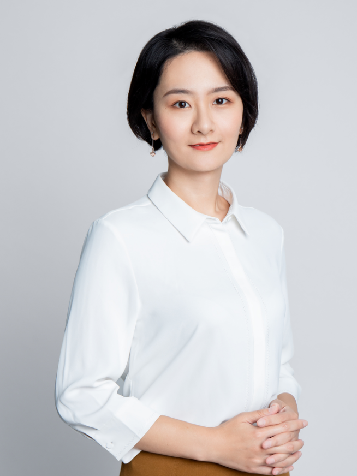
l 教育背景
2014年-2019年:清华大学管理科学与工程专业 博士
2017年-2018年:美国弗吉尼亚理工大学工业与系统工程专业 访问博士生
2010年-2014年:清华大学工业工程系 学士
l 工作经历
2023年至今:清华大学写作与沟通教学中心,副教授
2021年-2022年:清华大学写作与沟通教学中心,讲师(2022年6月起,任中心主任)
2021年-2022年:清华大学写作与沟通教学中心,副主任
2020年-2021年:清华大学写作与沟通教学中心,主任助理
2019年-2021年:清华大学人文学院,博士后/写作与沟通教学中心,专职教师
l 奖励荣誉
高等教育(本科)国家级教学成果奖二等奖(2022年,排名4/10)
北京市高等教育教学成果奖一等奖(2021年,排名4/10)
清华大学教学成果一等奖(2021年,排名3/6)
清华大学年度教学优秀奖(2021年)
清华大学课程思政示范课程、示范教师(2021年)
l 代表性研究成果
学术研究
曹柳星:《基于教育目标分类学提升学生思维水平的通识写作课开课理念与路径——以清华大学“工程师”主题写作课为例》,《中国大学教学》2022年第7期,第60-67页
曹柳星、贺曦鸣、窦吉芳:《“新工科”视角下的“课程思政”实践——面向理工科专业本科生的主题式通识写作课设计》,《高等工程教育研究》2021年第1期,第24-30页
曹柳星、马靓:《高校“双肩挑”辅导员疲劳现状调研及风险管理》,《人类工效学》2016年第22卷第4期,第9-17页
TSAO, Liuxing, KIM, Sunwook, MA, Liang, & NUSSBAUM, Maury Albert. “An exploratory study comparing three work/rest schedules during simulated repetitive precision work.” Ergonomics, vol. 64(12), 2021, pp. 1579–1594
LU, Peixian, TSAO, Liuxing, YU, Chen, & MA, Liang. “Survey of ear anthropometry for young college students in China and its implications for ear-related product design”. Human Factors and Ergonomics in Manufacturing & Service Industries, vol 31(1), 2021, pp. 86–97
LIU, Pin-Ling, TSENG, Yu-Cheng, CHANG, Chien-Chi, & TSAO, Liuxing. “Development of a tablet test for the precision assembly efficiency assessment.” International Journal of Industrial Ergonomics, vol. 83, 2021, pp. 103-112
TSAO, Liuxing, NUSSBAUM, Maury Albert, KIM, Sunwook, & MA, Liang. “Modelling performance during repetitive precision tasks using wearable sensors: A data-driven approach.” Ergonomics, vol. 63(7), 2020, pp. 831–849
RAU, Pei-Luen Patrick, TSAO, Liuxing, DONG, Lili, LIU, Xueqian, MA, Liang, & WANG, Junwei. “General and passenger-relevant factors of work-related musculoskeletal disorders (WMSDs) among Chinese female flight attendants.” Work-a Journal of Prevention Assessment & Rehabilitation, vol 66(4), 2020, pp 861–869
TSAO, Liuxing, LI, Lefei, & MA, Liang. “Human Work and Status Evaluation Based on Wearable Sensors in Human Factors and Ergonomics: A Review.” IEEE Transactions on Human-Machine Systems, vol. 49(1), 2019, pp. 72–84
CHEN, Ling-Hui., CHANG, Chien-Chi, WANG, Mao-Jun, & TSAO Liuxing. “Comparison of foot shape between recreational sprinters and non-habitual exercisers using 3D scanning data”. International Journal of Industrial Ergonomics, vol. 68, 2018, pp. 337–343
TSAO, Liuxing, CHANG, Jing, & MA, Liang. “Fatigue of Chinese railway employees and its influential factors: Structural equation modelling.” Applied Ergonomics, vol 62, 2017, pp. 131–141
TSAO, Liuxing, MA, Liang, & WANG, Luoru. “Effect of local wrist muscle fatigue on multiple assembly-related psychomotor skills.” Human Factors and Ergonomics in Manufacturing & Service Industries, vol. 27(4), 2017, pp. 210–217
TSAO, Liuxing, & MA, Liang. “Using subject-specific three-dimensional (3D) anthropometry data in digital human modelling: Case study in hand motion simulation.” Ergonomics, vol. 59(11), 2016, pp. 1526–1539
科研项目
主持2021年清华大学本科教改项目“通识写作课‘课程思政’目标制定与效果评估——以工程师、切尔诺贝利主题写作课为例”
主持2020年清华大学本科教改项目课程思政专项“基于情境创设实现‘写作与沟通’课程的隐性课程思政效果”
主持2020年写作与沟通教学中心教改一期项目“基于建构主义的教学设计:将课程思政融入主题式通识写作课教学”
参与国家自然科学基金重大专项:“人机协同中人的行为研究”(72192824,2021-2025)(专题3“人机协同的干预性、行为冲突及其调节机制”负责人)
参与2020年清华大学本科教改项目“写作与沟通中心构建‘合作型、研究性’教学团队探索”
参与2020年清华大学本科教改项目“‘写作与沟通’课学生作品勘误教学案例集的编写与出版”
参与2020年清华大学本科教改项目课程思政专项“‘主题式、小班制、深度浸润、朋辈学习’的全过程写作课课程思政建设”
参与2020年清华大学教师发展中心在线教学创新案例“‘写作云工坊’——《写作与沟通》朋辈学习线上平台”
参与2020年国家自然科学基金专项“神经数据驱动的智能制造场景下的生产管理机制与方法研究”(71942005,2020.01-2024.12)
参与2015年科技部创新方法工作专项:“‘三位一体’、‘三创融合’创新创业训练体系及示范”(2015IM040100,2015.10-2017.10)
参与2016年科技部创新方法工作专项:“‘行为驱动’、‘供需协同’的服务创新方法体系与应用”(2016IM010200,2016.10-2019.10)